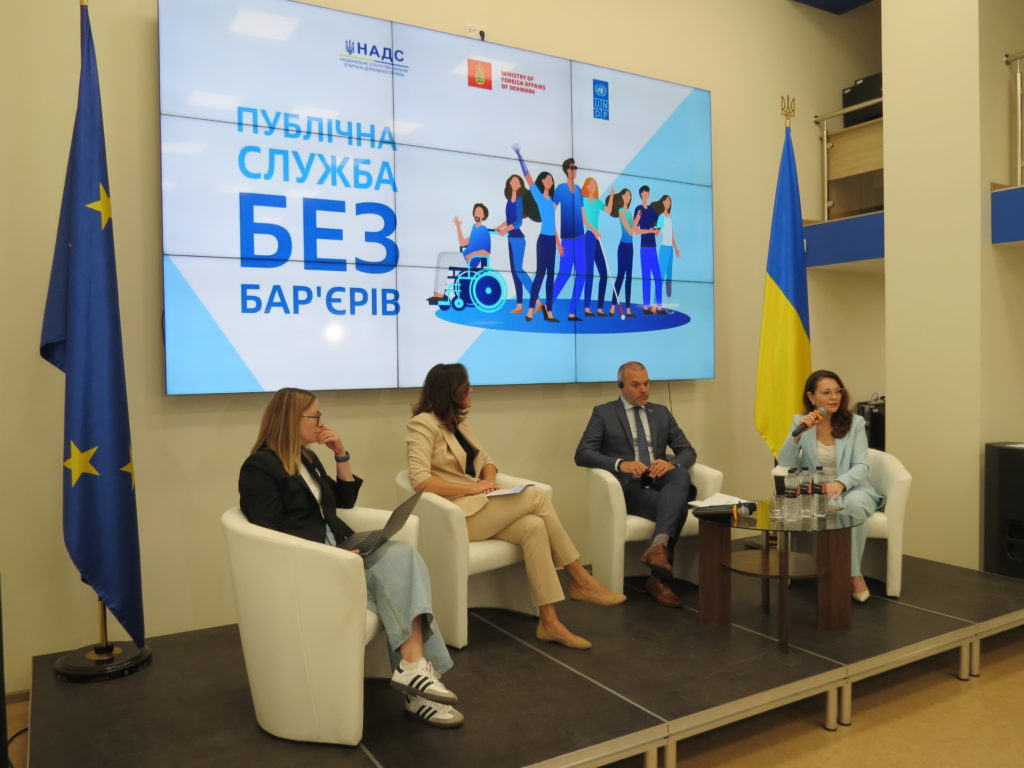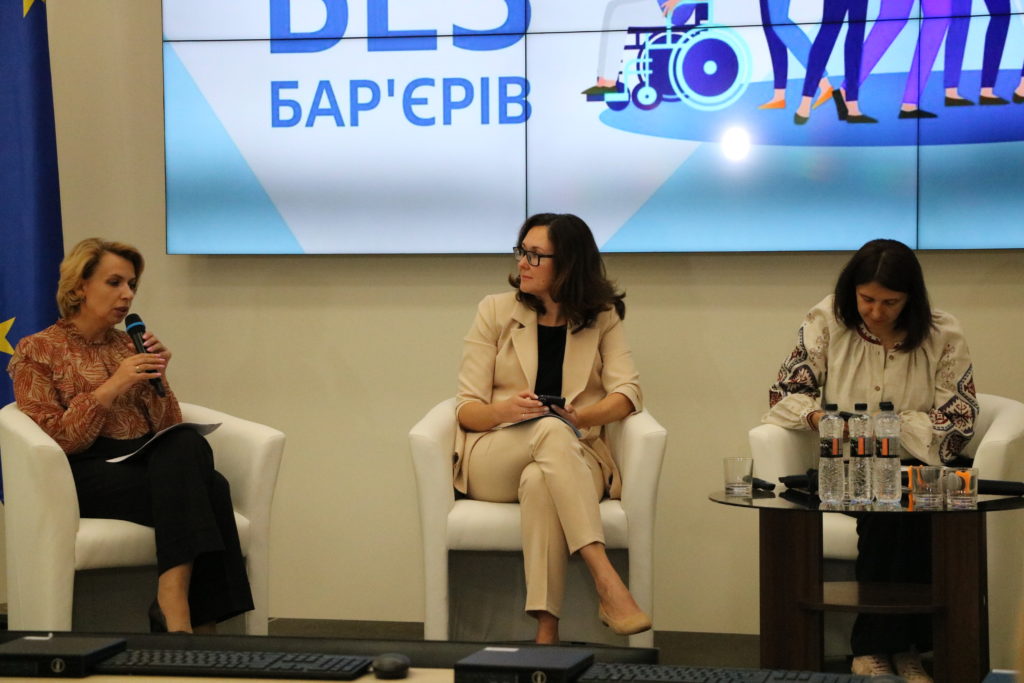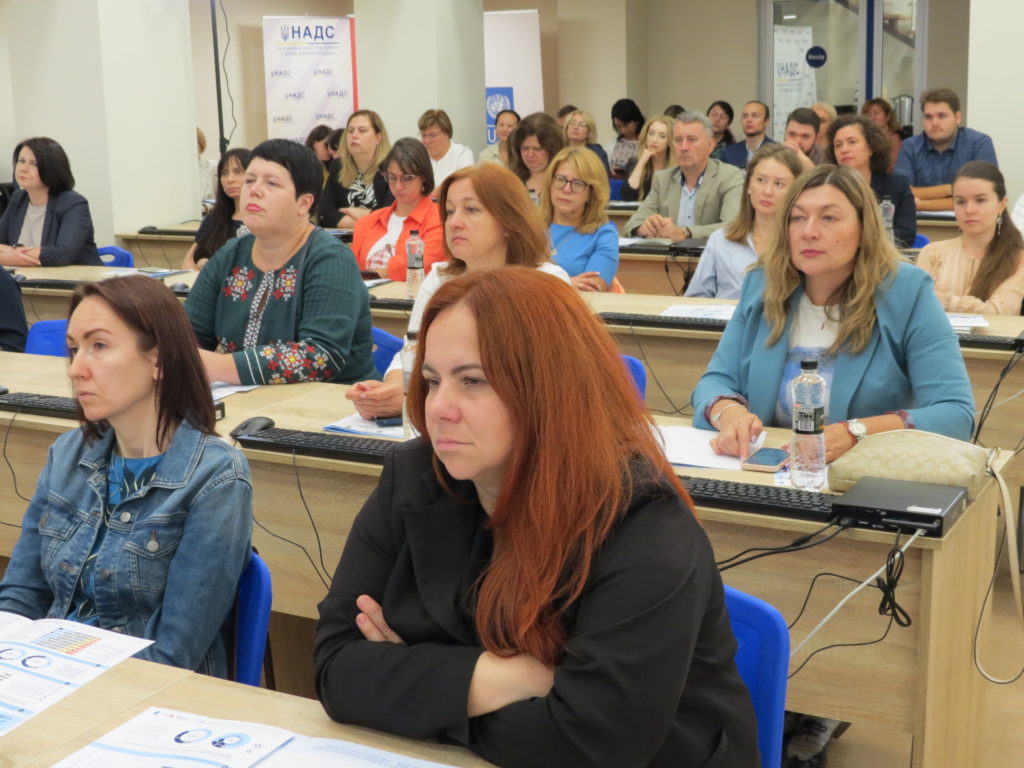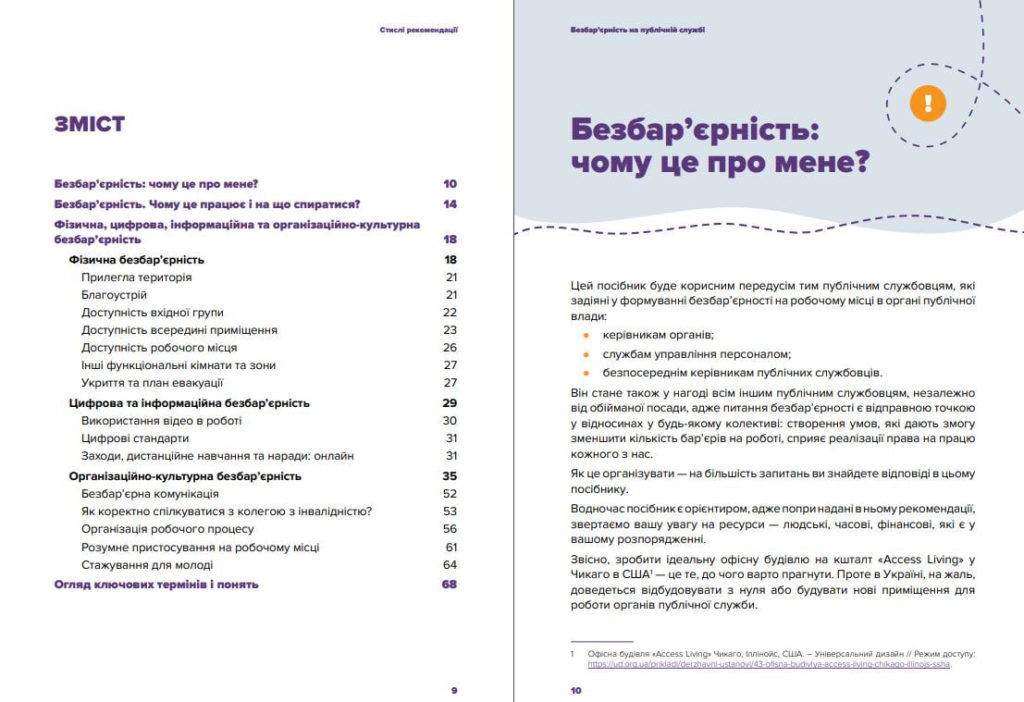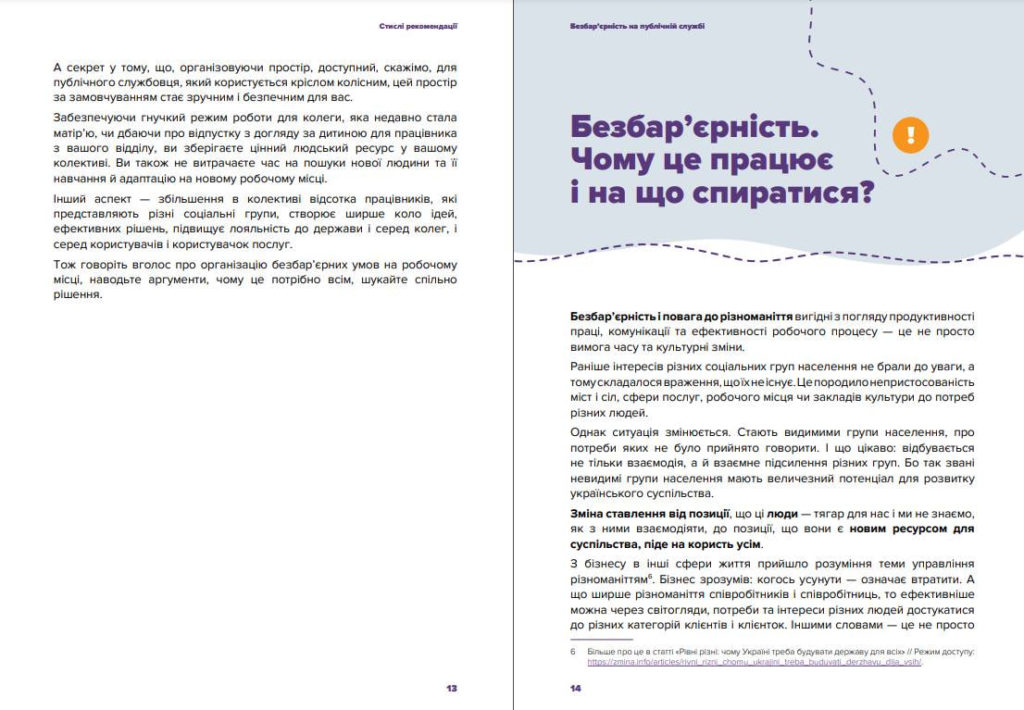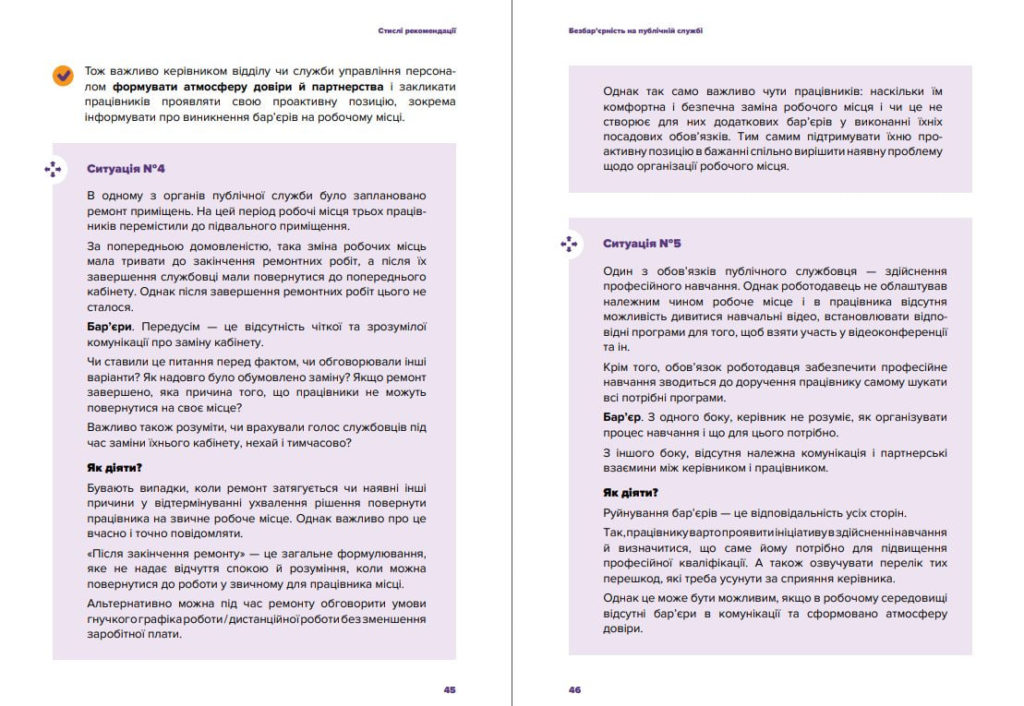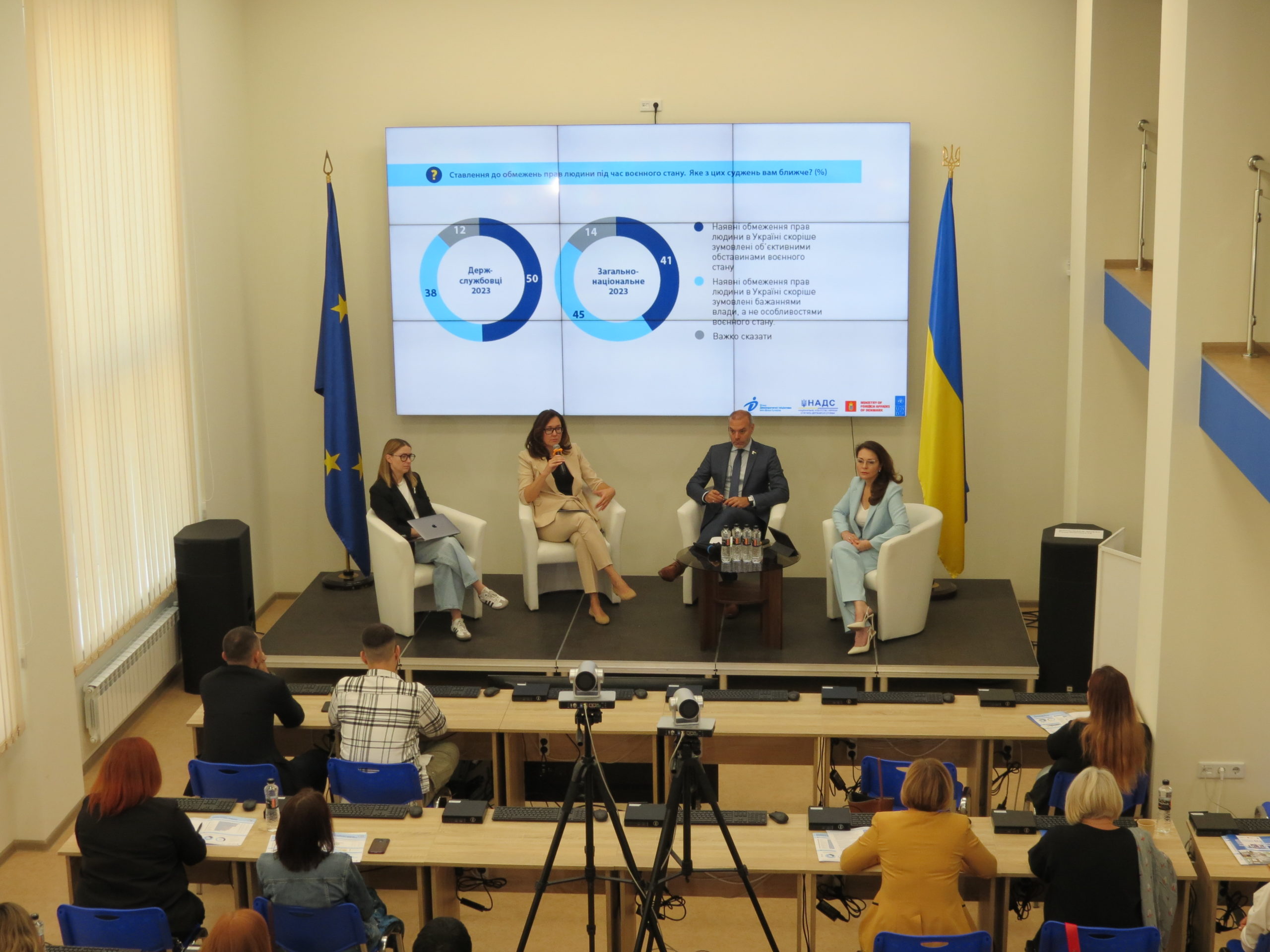
On 19 September, a roundtable discussion ‘Public Service without Barriers’ was organised by the NAUCS in cooperation with UNDP. During the event, joint research on human rights, barrier-free and inclusive civil service and local self-government was presented.
In addition, the event included a presentation of a guide on barrier-free public service. The guide is a compilation of recommendations from a group of NAUCS experts and the UNDP Ukraine Human Rights for Ukraine international project.
The manual introduces public servants to the concept of barrier-free access, reveals the main components of barrier-free access in the civil service, promotes best practices for creating a barrier-free workplace and a culture of barrier-free access in the civil service, debunks stereotypes, etc.
During the opening, Nataliia Aliushyna, Head of the National Agency, stressed that the agency has been focusing its efforts on creating barrier-free space in public authorities for several years, and the preparation of such a manual is a guideline for building an inclusive and accessible Ukraine. It is not only about physical barriers, but also about information and digital, organisational and cultural barriers.
‘The number of people with disabilities working in the civil service is growing steadily. While at the end of 2021 this number was 5.6%, at the end of 2023 it was already 6.8%. And this growth is not stopping, as Russia’s aggressive war against our country is causing irreparable losses. The guide aims to demonstrate that there are different types of barrier-free accessibility that we need to take care of as employers. We are talking about organisational culture in the public service in general. The issue of barrier-free accessibility should become an integral part of it,’ said Nataliia Aliushyna.
Christoforos Politis, UNDP Deputy Resident Representative in Ukraine, stressed that the philosophy of a barrier-free environment has become even more relevant since the outbreak of full-scale war, and noted that UNDP is working closely with the National Agency and the High School to develop and adopt a Model Educational Programme on the principles of barrier-free environment for public servants, which includes relevant cases and recommendations in the context of martial law and post-war recovery. This will create equal and fair opportunities for everyone, regardless of social status.
In her speech, Yuliia Lykhach, Head of the High School, presented the institution’s experience in professional development of public servants on human rights, barrier-free accessibility, and adaptation of female and male veterans. She also outlined further priorities in this area. In particular, training on barrier-free accessibility at the High School in 2023-2024 was implemented under 9 advanced training programmes, with 3,395 people taking part in the training.
